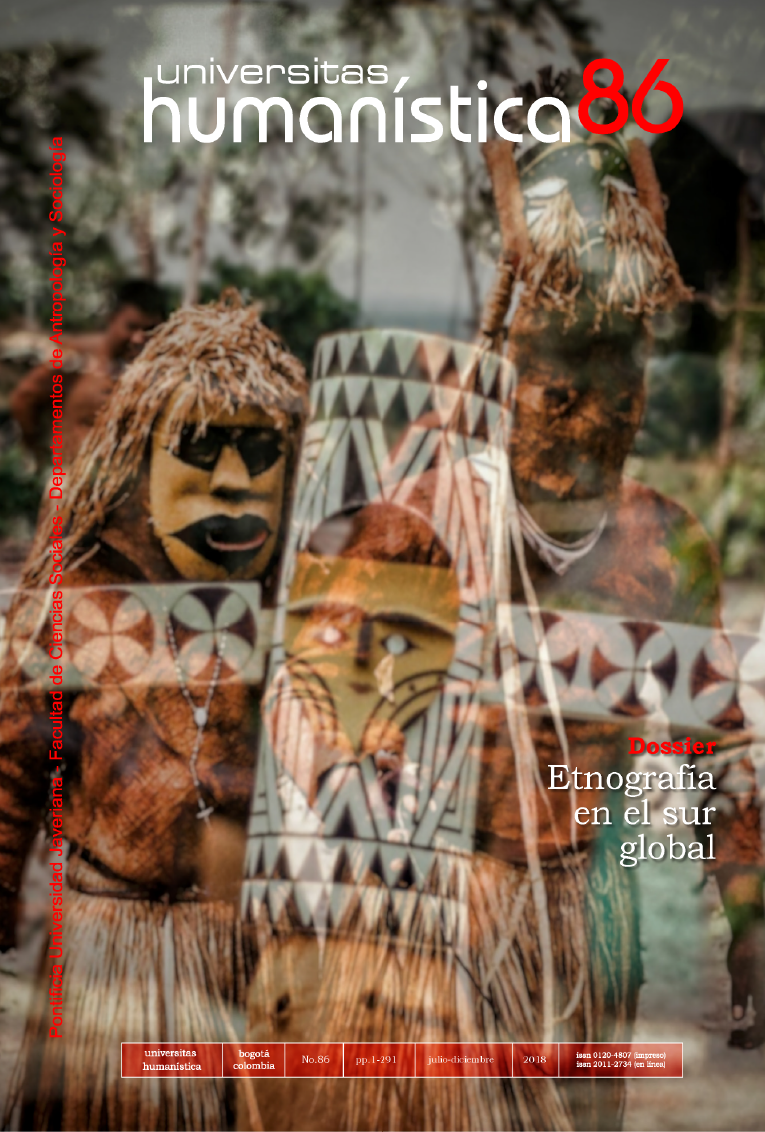Abstract
Based on the methodologies of the indigenous Gente de Centro (People of the Center) of the Colombian Amazon, this essay seeks to replace a notion of ethnographic practice as a set of techniques for data extraction, with a commitment with other cognitive practices that accepts the ways in which knowledge is produced and validated locally. Through the narrative of two indigenous research projects, the text suggests that the disenchanted modern method –with its “semi-structured interviews”, focus groups, and data collection designs– is inadequate to account for a world where everything speaks, and does so in unexpected ways. At the same time, the warning of indigenous people to monitor the effects of knowledge on the world compels us to assume a responsible attitude towards the world that the act of knowing produces, or can produce. The question is how do these methodologies, emerging from intercultural dialogue, contribute to decolonize the ethnographic work?

This journal provides immediate open access to its content on the principle that making research freely available to the public, encourages greater global exchange of knowledge.
The journal Universitas Humanística is registered under a Creative Commons Attribution 4.0 International Public License. Thus, this work may be reproduced, distributed, and publicly shared in digital format, as long as the names of the authors and Pontificia Universidad Javeriana are acknowledged. Others are allowed to quote, adapt, transform, auto-archive, republish, and create based on this material, for any purpose (even commercial ones), provided the authorship is duly acknowledged, a link to the original work is provided, and it is specified if changes have been made. Pontificia Universidad Javeriana does not hold the rights of published works and the authors are solely responsible for the contents of their works; they keep the moral, intellectual, privacy, and publicity rights.
Approving the intervention of the work (review, copy-editing, translation, layout) and the following outreach, are granted through an use license and not through an assignment of rights. This means the journal and Pontificia Universidad Javeriana cannot be held responsible for any ethical malpractice by the authors. As a consequence of the protection granted by the use license, the journal is not required to publish recantations or modify information already published, unless the errata stems from the editorial management process. Publishing contents in this journal does not generate royalties for contributors.



